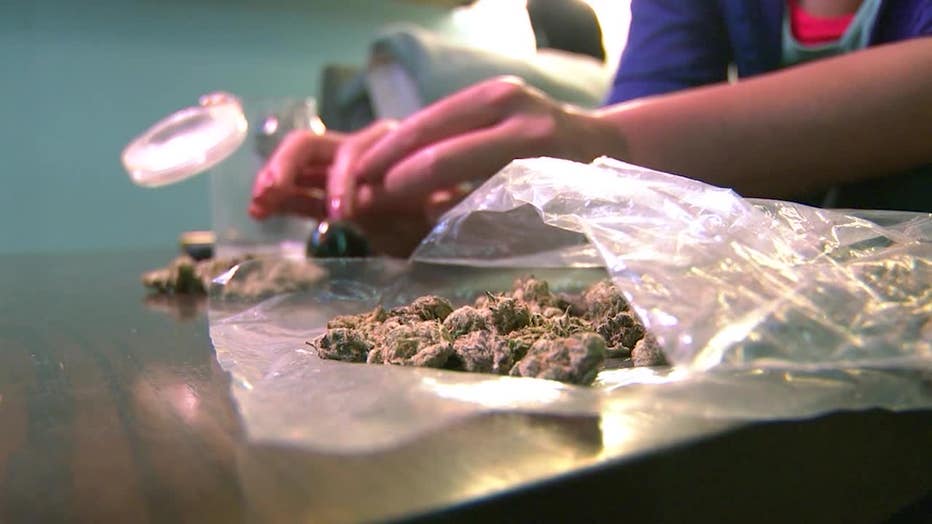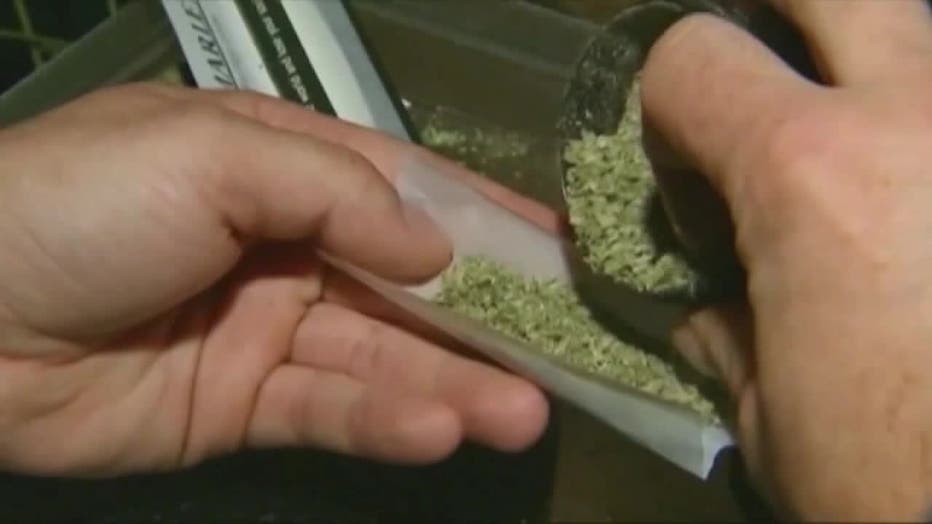Marijuana proposed reclassification: What this could mean for Georgia

What marijuana reclassification means in Georgia
The nation?s top drug-enforcement body will soon reclassify marijuana as a less dangerous drug. That would be a historic shift in drug policy that?ll have ripple effects across the nation. It?ll be the DEA?s biggest policy change in more than 50 years.
ATLANTA - The U.S. Drug Enforcement Administration (DEA) is poised to reclassify marijuana as a less hazardous substance, signaling a profound shift in the nation's drug policy that has stood for generations. This historic move could send waves across the country, impacting everything from medical research to law enforcement.
The landmark proposed reclassification, which is currently under review by the White House Office of Management and Budget (OMB), would shift marijuana from a Schedule I to a Schedule III drug. This change would place cannabis alongside substances like ketamine and certain anabolic steroids, rather than its current classification with heroin and LSD.
Officials familiar with the matter, who requested anonymity due to the sensitive nature of the regulatory discussions, indicated that this reclassification recognizes the medical benefits of cannabis and its lower potential for abuse compared to more dangerous drugs. However, this change stops short of legalizing recreational marijuana use.

The DEA's initiative clears a major regulatory hurdle, marking the agency's most significant policy shift in over half a century. The next steps involve a public commentary period, initiated after OMB's approval.
Following the public input, the proposal will be reviewed by an administrative judge. The final rule will be published after this comprehensive evaluation, officially enacting the reclassification.
What would marijuana reclassification mean in Georgia?
Right now, it is simple speculation as to what a change to marijuana at the federal level would mean for the state of Georgia. It could lead to lower penalties or could change nothing at all.
For trial lawyer Tom Church, it’s a big deal. Church says the reclassification would not legalize recreational marijuana. It would just mean potentially lighter punishment for marijuana offenses at the federal level. "You’re going to see a lot less federal marijuana prosecutions. The penalties for marijuana federal offenses are going to be much lower," Church said.
"It is historic," said Sharon Ravert, founding director of Peachtree Norml, which advocates to reform marijuana laws. "Hopefully it’ll be one step toward more sane laws."

However, many believe the reclassification likely will not have much effect on marijuana policy here in Georgia. "It’s not going to do anything for the state of Georgia," Ravert said.
States often follow federal policy. Right now, Georgia considers marijuana a dangerous drug. "Here in Georgia, marijuana is still going to be Schedule 1 substance," Church said.
State legislators would have to change drug laws for the policy to have any effect here in Georgia. "The classification will not keep people from getting arrested nor will it expunge or do that that type or work around cannabis for people already arrested in the past," Ravert said.
Capt. Adrian Massey heads the narcotics and gangs' division for the South Fulton Police Department. He says no matter what the policy, his job would remain the same. "It’s not going to change anything with us," Massey said. "My job is to make sure we enforce the law."
The DEA will hear public comments on its proposal. A judge will review it. The agency would eventually publish a final rule.
Why are the federal marijuana rules changing?
It comes after President Joe Biden called for a review of federal marijuana law in October 2022 and moved to pardon thousands of Americans convicted federally of simple possession of the drug. He has also called on governors and local leaders to take similar steps to erase marijuana convictions.
The election year announcement could help Biden, a Democrat, boost flagging support, particularly among younger voters.

Biden and a growing number of lawmakers from both major political parties have been pushing for the DEA decision as marijuana has become increasingly decriminalized and accepted, particularly by younger people. A Gallup poll last fall found 70% of adults support legalization, the highest level yet recorded by the polling firm and more than double the roughly 30% who backed it in 2000.
The Associated Press contributed to this report

